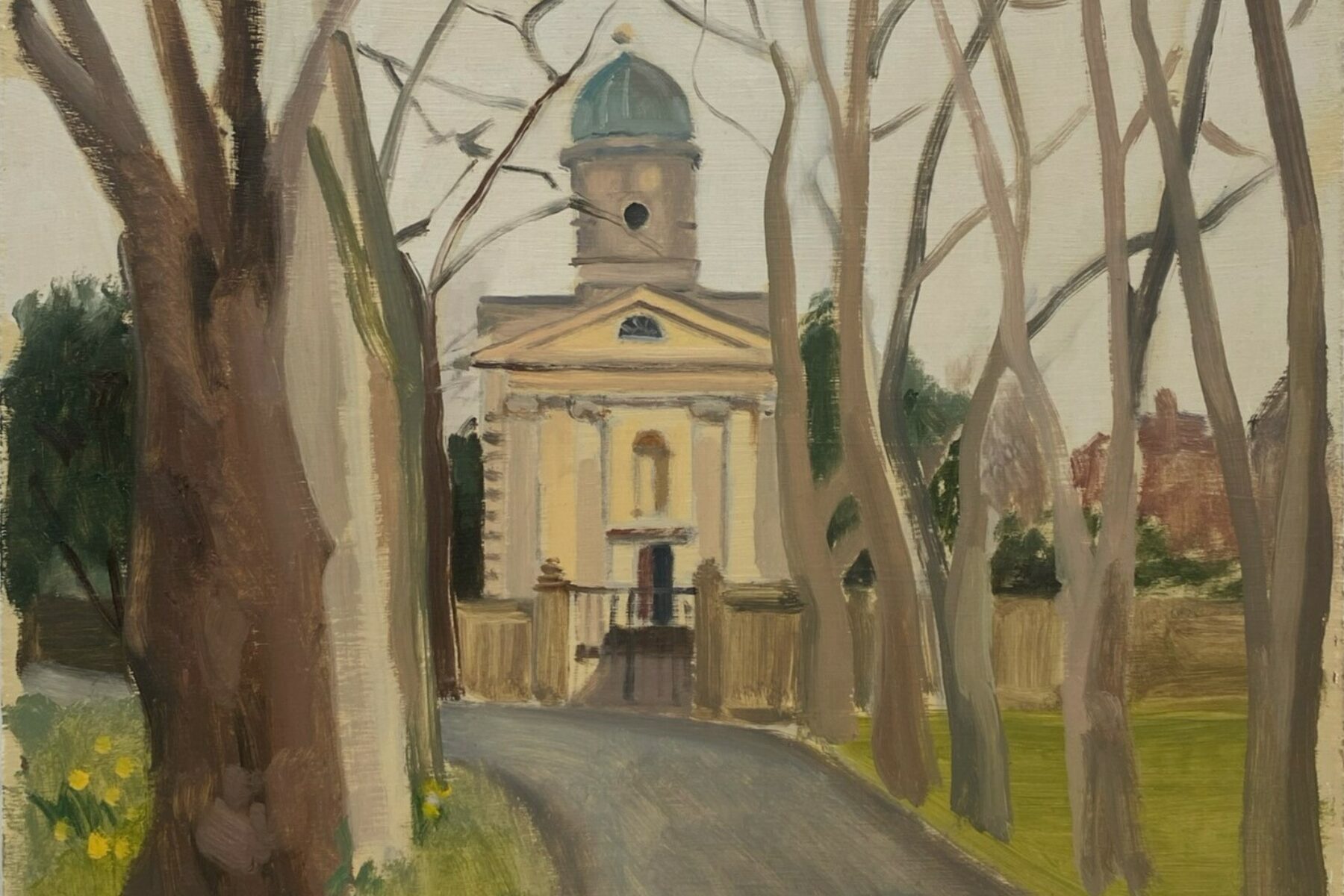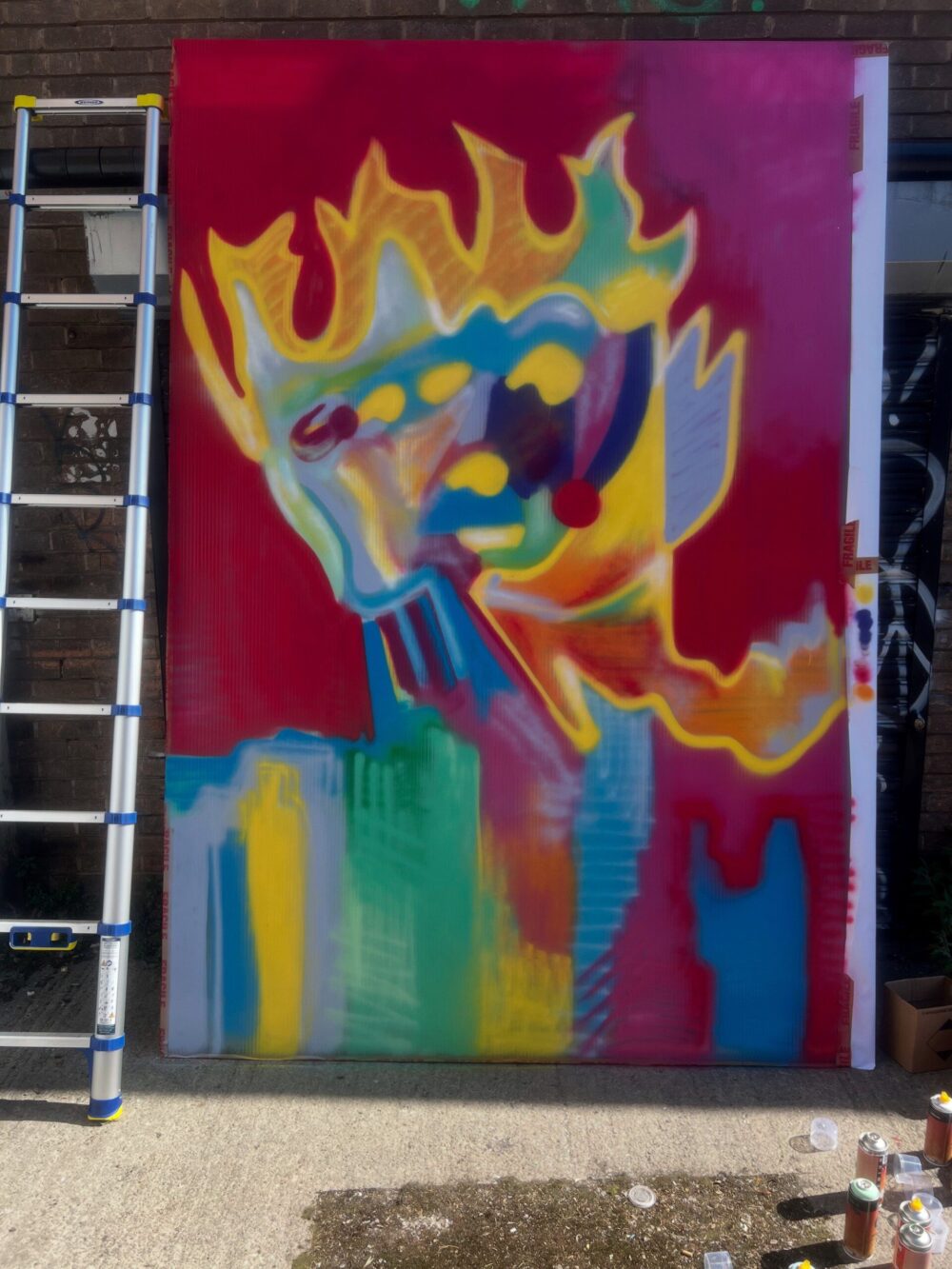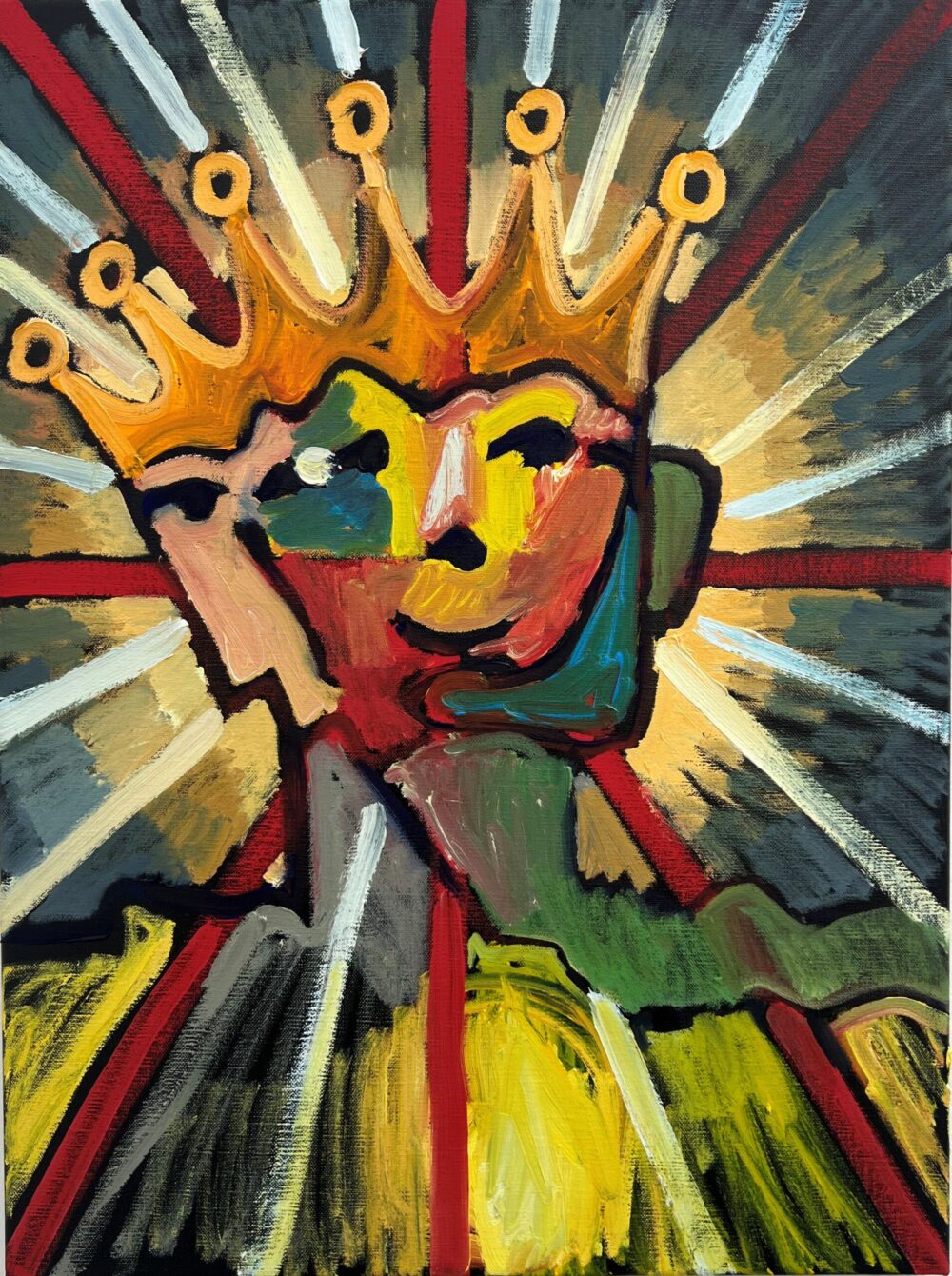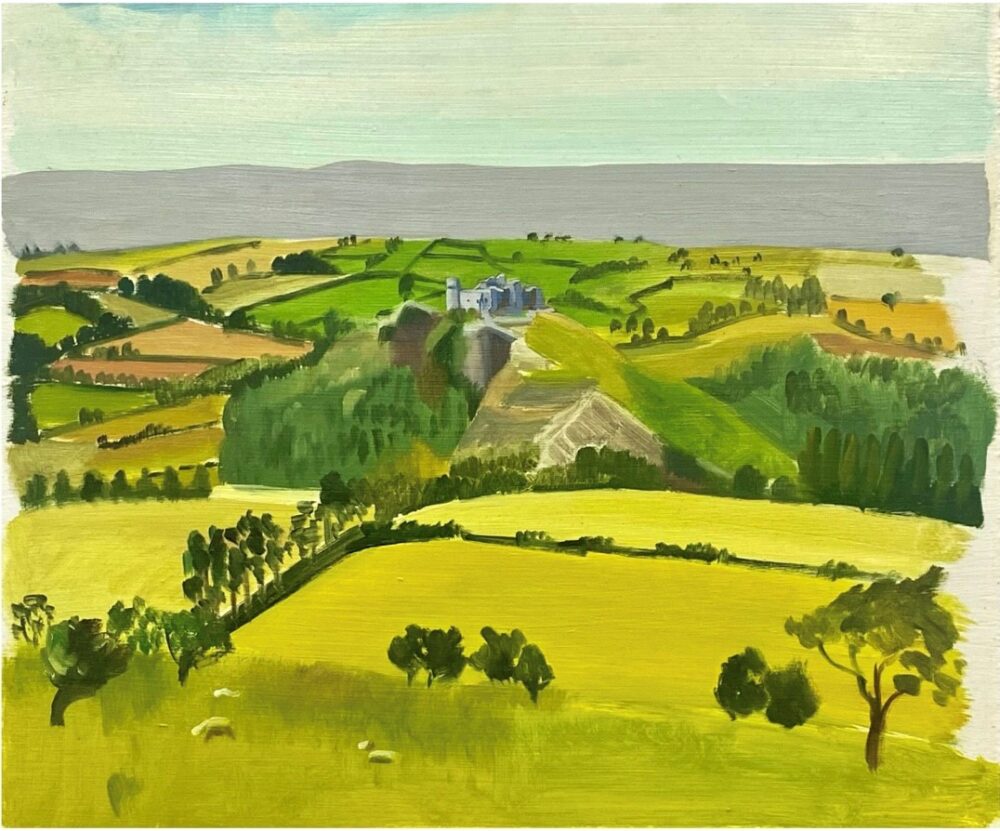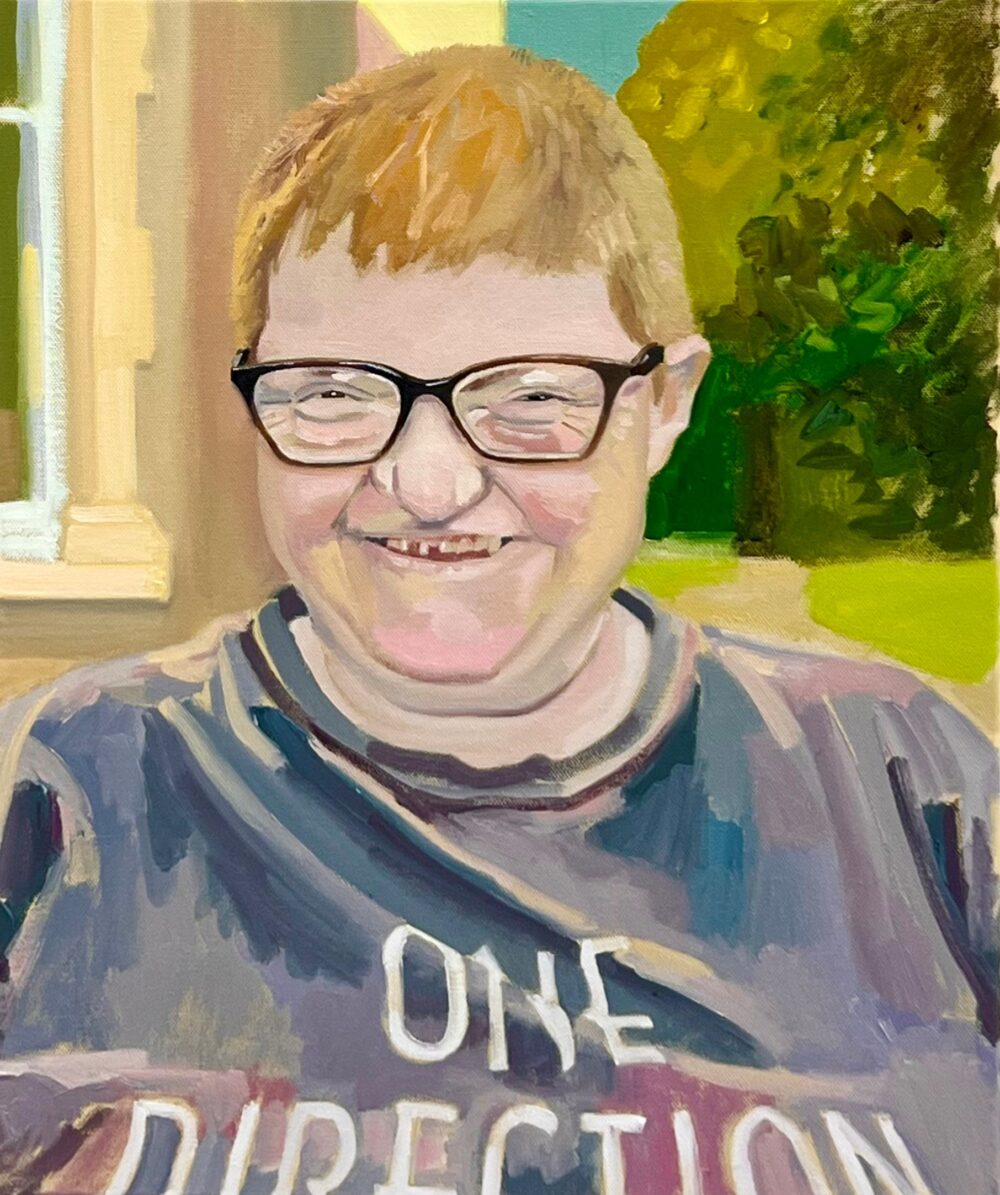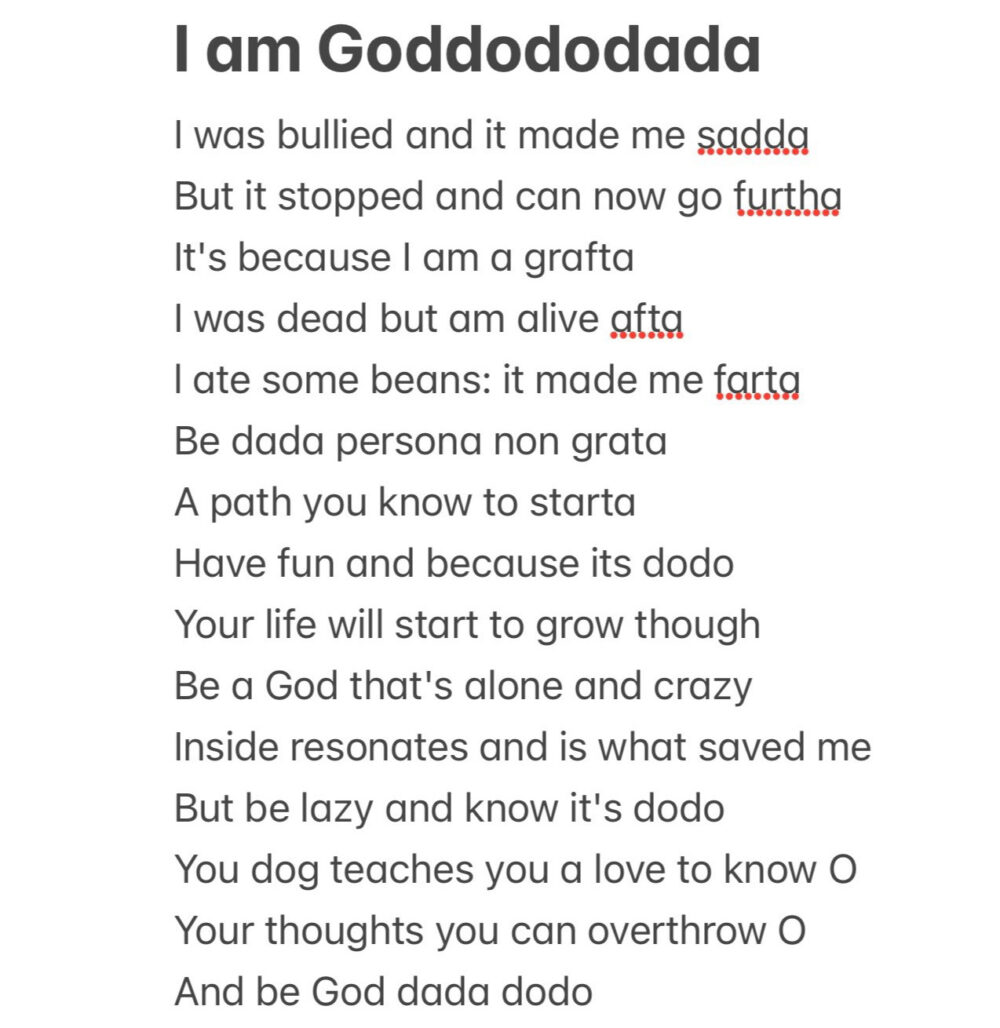George Harding is a multidisciplinary, neurodiverse artist and graduate of Chelsea College of Arts (UAL). His practice spans plein air painting, spray painting, poetry, and therapeutic approaches to art, exploring themes of mental health, identity, and recovery.
His plein air practice began during the pandemic as a therapeutic outlet, evolving into The Painted Path—a series of oil paintings inspired by Raynor Winn’s novel The Salt Path. Supported by Arts Council England, this project captures the fleeting, sublime beauty of the South West Coast and serves as a spiritual meditation on time and place.
Under the street art alias Hardie, Harding channels the rebellious energy of the 1990s and 2000s Bristol graffiti scene that shaped his youth. Recently, he has been creating large-scale spray paintings on twin wall. His work as Hardie was featured in Children of the Can: An Anthology of Bristol Street Art.
As @goddododada, his Instagram poetry persona, Harding writes poems as a way of processing and managing mental health. This practice enables him to transform internal experiences into structured, cathartic expression, helping to externalise thoughts and ground his wider artistic practice.
His therapeutic art alias, @geezygee.dageeza, is centred on play, experimentation, and emotional healing through painting. This body of work includes the Care Home Series, created while working as a carer, which celebrates the individuality and dignity of people with learning disabilities. Other paintings, often seen behind misted mirrors and rippled glass, explore impermanence and fragmentation.
Harding also works as an arts facilitator with, AIM (Arts In Motion), a charity that supports artists with learning disabilities. In this role, he teaches painting techniques and fosters creativity, confidence, and self-expression within a community setting.
Across these varied personas and practices, Harding explores the self as something in constant flux—shifting between fragmentation and wholeness. Each aspect of his work inhabits distinct forms, belonging to specific contexts and communities. His work is held in the collections of the Bethlem Museum of the Mind, Bristol Museum, and the Wellcome Collection.


